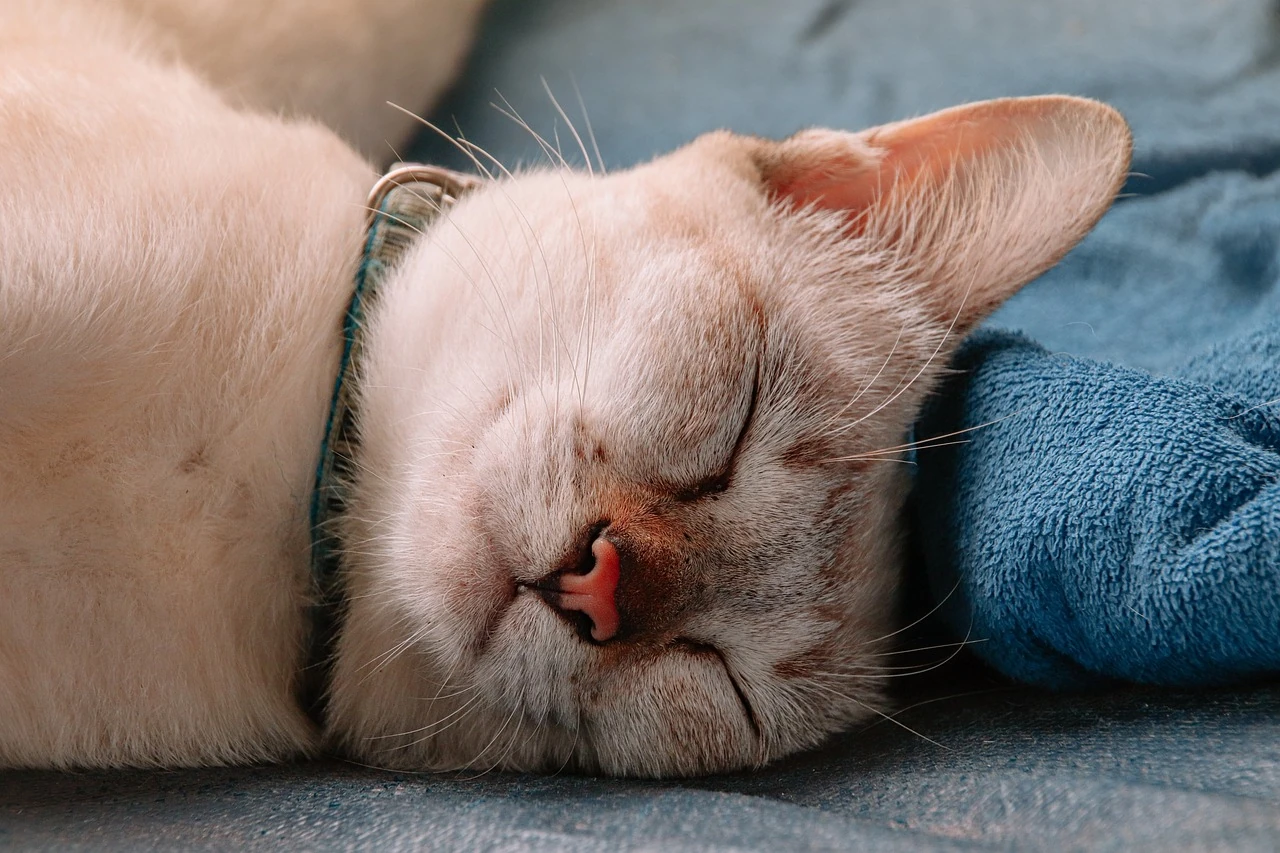If you are new to owning a cat, you may be surprised to find that health problems are a common thing. No matter what breed of cat you own, health problems are to be expected. Some may be hereditary, while others can easily be prevented.
Cat Worms
No matter what breed of cat it may be, worms are a very common and recurring problem. Tapeworms, roundworms, and hookworms are among the most common that infect cats. Cats who have problems gaining weight, problems with fleas, or if you find white specks in his stool, you should have your vet test him for worms. Although they can be treated with medicine, worms can prove to be fatal if they are left untreated.
Cat Hairballs Hairballs are the most common health problem for cats. All cats groom themselves on a daily basis, normally swallowing the loose hair that comes from their coats. On occasion, this loose hair will gather into a ball and become lodged in the digestive tract instead of passing through in your cat’s stool. When your cat starts to cough and hack, he is normally coughing up a hairball. Although it can be rather disgusting in the end, most cats can dislodge hairballs without any problems.
Hairballs are the most common health problem for cats. All cats groom themselves on a daily basis, normally swallowing the loose hair that comes from their coats. On occasion, this loose hair will gather into a ball and become lodged in the digestive tract instead of passing through in your cat’s stool. When your cat starts to cough and hack, he is normally coughing up a hairball. Although it can be rather disgusting in the end, most cats can dislodge hairballs without any problems.
In rare cases, a hairball can pass through to a cat’s intestine, creating a blockage. Blockages are very serious problems, and can be life threatening if they aren’t treated. If your cat becomes constipated, isn’t eating properly, or has a very dull coat, he could have a blockage. If you notice any of these symptoms, you should take him to the vet immediately. You can prevent hairballs and blockages by brushing your cat 2 – 3 times a week to remove loose hair. You can also feed him food that is designed to control hairballs as well.
Urinary tract infection
Urinary tract infection is also a common health problem with cats. Urinary tract infection is more common with male cats that haven’t been neutered, although females can suffer from this problem as well. When a cat suddenly stops going to his litter box, this problem is normally the cause. Another symptom is when the cat’s urine starts to smell really strong. If you suspect that your cat has a urinary tract infection, you should take him to the vet. Your vet can treat the problem with medicine, and make recommendations to help avoid this problem in the future.
Feline leukemia
In the past, feline leukemia was the biggest cause of death in cats. These days however, there are vaccines available that can treat the disease. To treat the disease, your cat will need to be given the shot before he or she is exposed. Even though death doesn’t happen immediately, cats that are exposed to feline leukemia normally don’t have a long life span. If you know your cat has feline leukemia, you should never allow other cats around him, as the virus is highly contagious.
To protect your cat, you should always make sure that you take him to the vet for his regular check ups. If you keep him up to date on his vaccinations, he should lead a healthy and productive life. Although some health problems can’t be avoided, most of them can. You can also keep your cat indoors as well, which will protect him from a majority of health problems. If your cat is an outdoor cat, regular visits to the vet will keep him healthy. As long as you take your cat to the vet and keep him healthy – he will be your companion for years to come.
Heartworm Treatment For Cats
As most pet owners already know, heartworm treatment for cats and dogs isn’t the same. Never, under any circumstances, should you give your cat heartworm treatment that is designed for a dog – or vice versa. Even though you may own both dogs and cats, you should always give them medicine that is designed for their species.
No matter how you look at it, heartworm treatment isn’t easy. Your goal is to get rid of the heartworms, although there are several factors that you’ll need to consider. The first thing to do is take your cat to the vet, as he will be able to run tests to determine just how many heartworms your pet has. He can also find out how the worms are affecting your cat and if your cat can deal with any side effects that the treatment medicine may impose.
Heartworms are a very serious condition, as the worms will feast on the vital areas around your cat’s heart. Treatment can be serious as well, especially if something goes wrong. Veterinarians are trained to deal with heartworms though, in both cats and dogs. Even though you may be able to buy treatment medicine at your local department store, you should always consult with your vet before you give anything to your pet.
 Treating your cat for heartworms may indeed be no treatment at all, as cats are extremely difficult to treat. The dying worms have side effects as well, often times causing more than 1/3 of the treated cats to end up with serious problems. Dying worms can become lodged in the arteries of the heart, which are already inflamed due to the worms being there. When a lodged worm starts to decompose, it can lead to very serious problems. Pets that have a serious infestation with heartworms may need to spend some time at the hospital, to ensure that they are properly treated.
Treating your cat for heartworms may indeed be no treatment at all, as cats are extremely difficult to treat. The dying worms have side effects as well, often times causing more than 1/3 of the treated cats to end up with serious problems. Dying worms can become lodged in the arteries of the heart, which are already inflamed due to the worms being there. When a lodged worm starts to decompose, it can lead to very serious problems. Pets that have a serious infestation with heartworms may need to spend some time at the hospital, to ensure that they are properly treated.
Some cats may not be able to take a certain type of heartworm treatment medicine. Depending on the side affects and how the medicine affects the cat, some breeds may not be able to take some of the better medicines. To determine the best treatment options for your cat, your vet will need to run several tests. Once the tests have concluded, your vet will be able to tell you the best options available for treatment.
With all diseases, prevention is a lot better and safer than treatment. Be sure to talk to your vet and find out what heartworm prevention medication is the best to use. Your vet can tell you what you need to get, and how to use it. This way, you can prevent your pet from getting heartworms – and the serious side effects and life threatening issues that go along with them.

